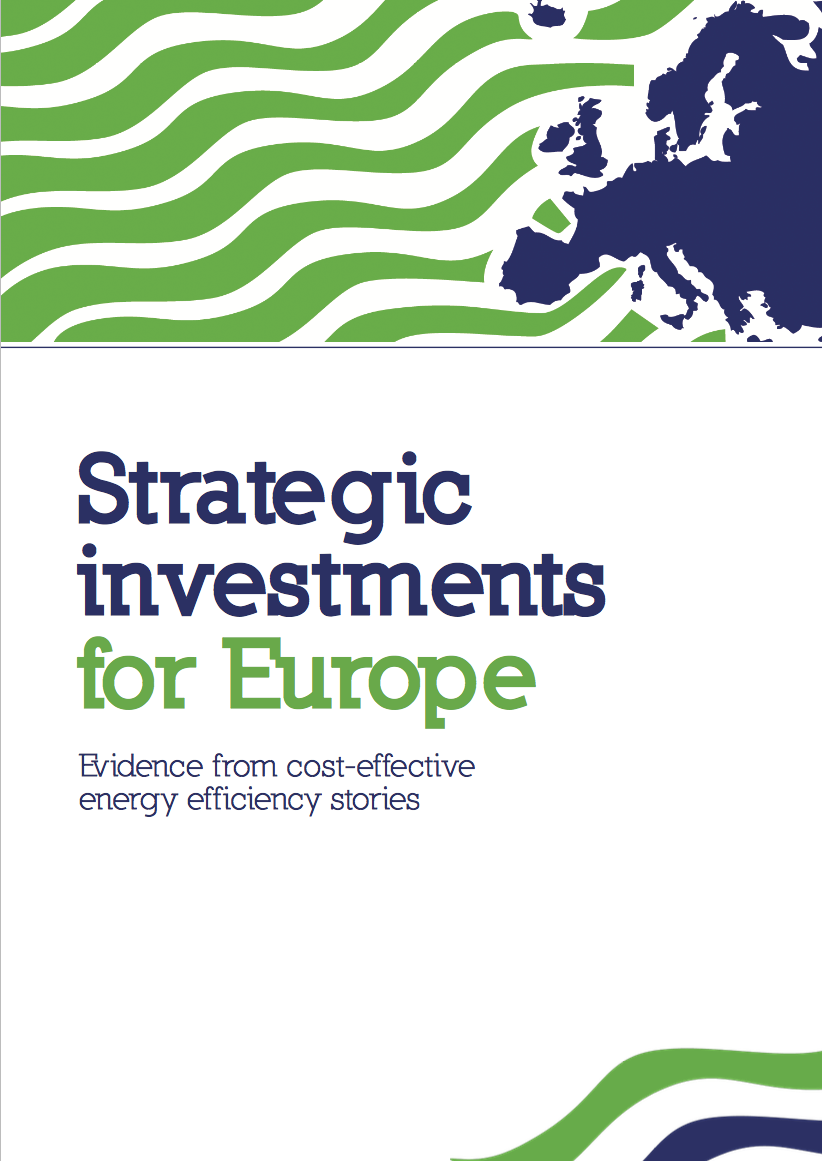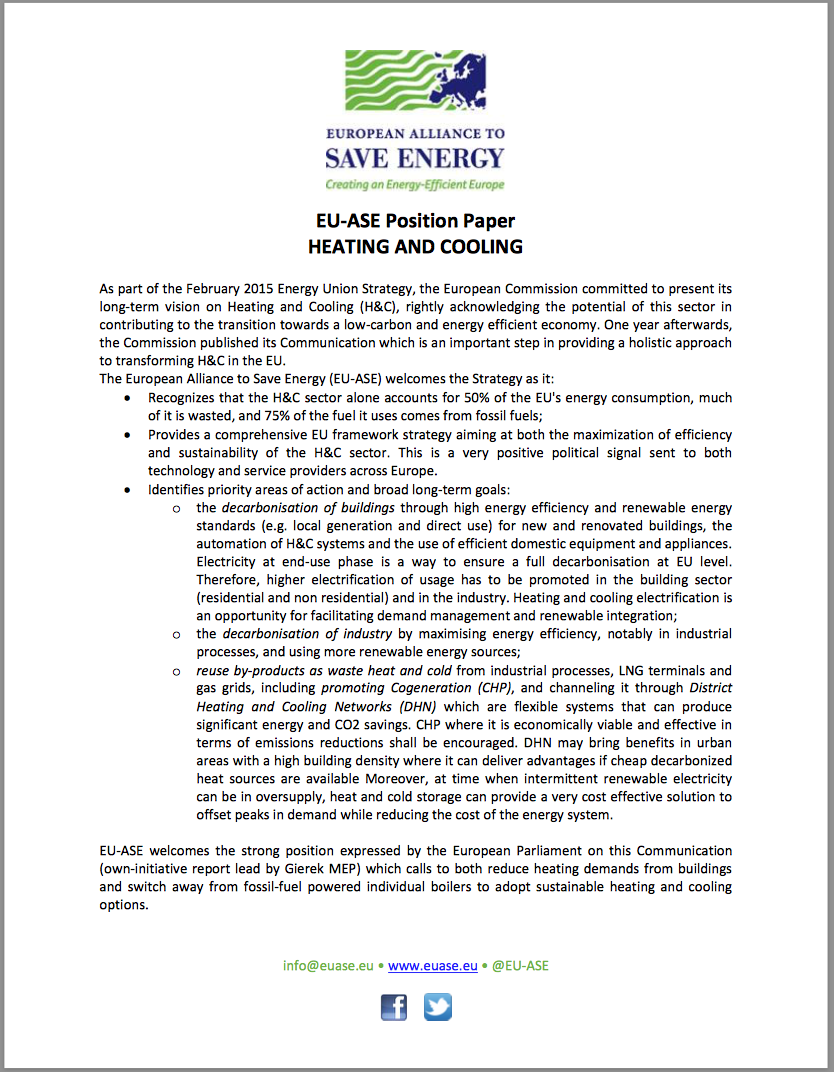Energy efficiency in the “Clean Energy for All” package: an economic opportunity, a societal imperative, a political commitment
To the kind attention of Jean-Claude Juncker, President of the European Commission
Cc: College of Commissioners
Brussels, 24 November 2016
Dear President,
The business community has high expectations on the ambition of the forthcoming “Clean Energy for All” package. We attribute a strategic importance to this proposal as it will give a political signal to the business, financial and investor community, not only in Europe but at global level as well.
As the representatives of the business sector, we welcome the commitment of the Commission on the ‘Efficiency First principle. We call for this principle to be reflected in the forthcoming proposals for a “Clean Energy for All” package by the European Commission through a 40% EU binding target for energy efficiency and an ambitious revision of key legislations, notably the Energy Efficiency Directive and the Energy Performance of Buildings Directive.
Regulatory certainty is fundamental to providing the private sector with the signals they need to make investment decisions and to incentivize the market to take up of new business models and services for clean energy and energy efficiency. Models such as those presented in our recent publication “Strategic investments for Europe: Evidence from cost-effective energy efficiency stories”.
The current non-binding 27% target barely corresponds to business as usual. Europe must increase the scale and rate required to meet its Paris climate commitments and if we want to secure a cost-effective energy transition, both a binding ambition for energy efficiency and clear long-term vision are needed.
Energy efficiency is not only a business opportunity, it is a societal imperative. Increased competitiveness for European companies will go hand in hand with economic recovery and the creation of local, longterm jobs. By using energy more wisely Europe can significantly reduce the EU’s gas import dependency and reduce EU greenhouse gas emissions in a cost-effective way.
The ratification of the Paris agreement was a proud moment for the EU. The European Commission has an opportunity to embody this commitment and show leadership from the highest political level by making efficiency the pillar of the Energy Union strategy in next week’s package.
Thanks for your attention,
Harry Verhaar
Head of Global Public & Government Affairs
Philips Lighting
Alix Chambris
Director of EU public affairs
Danfoss
Didier Teirlinck
Executive Vice President
Ingersoll Rand
Gene Murtagh
CEO
Kingspan
Sian Hughes
Director of External Affairs
Knauf Insulation
Bertrand Deprez
Vice President EU Government Affairs
Schneider Electric
Roland Ullmann
Director Industry Affairs – Building Automation
Siemens
Monica Frassoni
President
European Alliance to Save Energy (EU-ASE)
In a fast-changing political and economic environment, 2025 was a year of continued efforts to strengthen security, stability, and competitiveness for European businesses.
Throughout the year, our work demonstrated that energy efficiency is not only essential to achieving climate goals, but also a key driver of innovation, energy independence and sustainable long-term growth across Europe.
Strong engagement with policymakers, combined with the successful organisation of the 4th European Energy Efficiency Day, highlighted the importance of collaboration and dialogue in advancing shared objectives. Partnerships across sectors and institutions remained central to delivering impact and shaping effective energy policies.
Looking ahead to 2026, we will intensify our efforts to secure the regulatory certainty that can accelerate the energy transition, while providing businesses with the investment confidence they need and strengthening Europe’s competitiveness.
Read the full Activity Report here.



